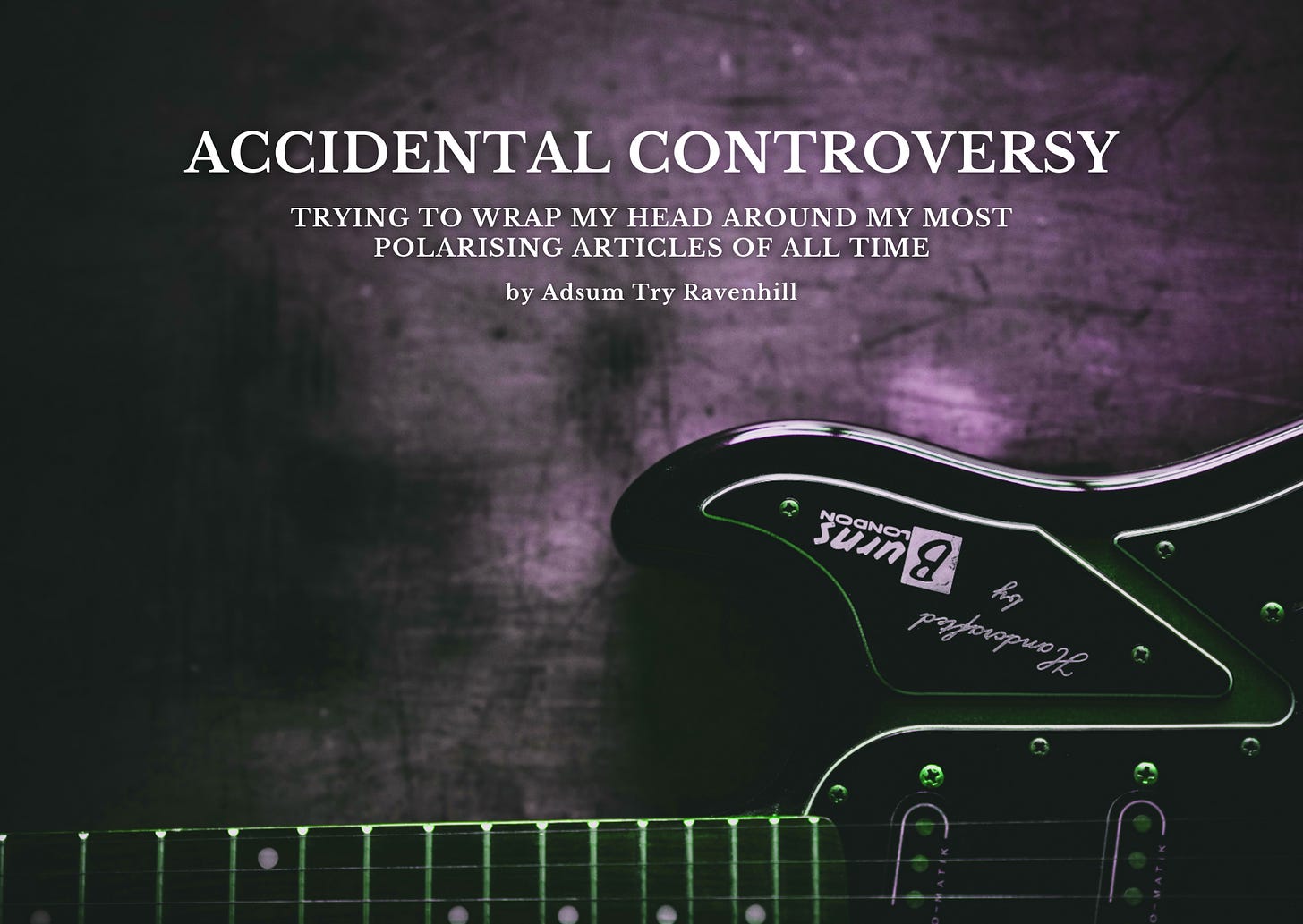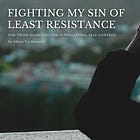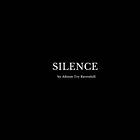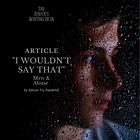There is a dividing line among Christians that sits somewhere along the C Major scale. Play it one way and people will worship, another and those same people will avert their ears in horror. These dividing lines cut across so many Christian creative contexts, as well as between theological camps and tribes and then, sometimes, out of nowhere, we’ll find a new one completely by accident.
A few weeks ago I released an article called “Fighting my Sin of Least Resistance.” The point of the article was to challenge readers to struggle with sin and self-control in the context of local church, not in hidden places of their hearts. It struck a chord with many readers; for some that happened to be a major chord, for others, a minor one. I’ve had more positive feedback about that article than about any other article I’ve ever written, but I also lost the largest percentage of subscribers in the history of the Raven’s Writing Desk all in just the first twenty-four hours after it was posted.
I still don’t quite understand why.
This is the latest in a long line of polarising articles I’ve released since 2020. Out of the three I’d like to talk about today, I only thought one would be potentially difficult territory before its release. Every other article was just a result of writing from heartfelt experience, a knowledge of God, and knowledge of man.
Controversy 101
After ‘Fighting my Sin of Least Resistance’ was released, I shared my thoughts about the response on Twitter. I suggested that perhaps the controversy was because of particular sin I’d struggled with; others posited that perhaps it was too challenging. Since then I’ve had three or four more potential reasons sent my way, but the truth of the matter is, it doesn’t matter. I spent so much time thinking about the negative response that initially I didn’t pay any attention to the positive.
This is all the more sad, because as a writer in the 2020s, positive feedback is rare.
Negative comments are far more common, and for the most part I’ve learned to deal with that. I’m only sharing this because I think this is probably the case for many people out there, not just writers. It may be that you’re an accountant and you only get feedback from your clients when you’ve missed something, or a musician who's just gotten a burning review in the local newspaper.
Whoever you are, whatever your relationship with feedback, you’re not alone.
The second article, Silence, was a response to deafening cries calling attention to the multitude of atrocities happening around the world today. In it, I outlined why I rarely speak up, and the process of santcification that had led me to that decision.
I’d been convicted in my teens that anger—or at the very least my anger—is always a bad motivation to act, even when the outcome might be good. Anger has a way of blurring our vision, and so, drawing from James 1:19-21, I wrote the following:
So much of what I see causes me immense grief, as I’m sure it does for many of you… and some of what I see brings out anger in me. I wish I was slower to anger in these things, but I’m not. I need to be sanctified further, just as we all do. Thankfully, my anger never leads to physical outbursts, but as a writer, my natural inclination would be to give that anger an outlet. I’m tempted to write fast, to write well, but to write unrighteously, as it says in James, “the anger of man does not produce the righteousness of God.”
Similar to the previous article, this got a great amount of likes and some immediate ‘unsubscribes.’
Interestingly, similar to the previous article I mentioned, in this article the primary way I talked about dealing with sin was by exposing my own. I encouraged readers to take a look at their own sin too, and I wonder if I caused people to feel shame, or whether perhaps they felt I should have been more ashamed of myself. Either way, I still feel convicted that sometimes the best way for me to write about sin is to show you the depth and the ramifications of mine. The most dire consequence of my sin is that it nailed Jesus to the cross; and the same is true of yours. If either of us feels shame over our sin, we should run with that shame straight to Jesus, accept the grace he has offered, and lead lives full of gratitude in service of him.
There was a time, however, when I felt more shame than I can ever convey. It is an experience I sadly share with millions of other male victims of abuse around the world today. The only difference—and it is a glorious difference—is that my shame has been healed.
In the Summer of 2022, I began seeing many Christians—both in my own spheres and on Twitter—claiming that Men and Boys couldn’t be victims of abuse. This was largely a direct response to a trial taking place between Jonny Depp and Amber Heard.
I couldn’t pretend not to care. I wrote about caring for Men and Boys experiencing abuse, how the church can do better, why the world isn’t equipped to do so, and how we can help abusers come to the cross and repent too.
It is to this day the hardest article I’ve ever written.
Unsurprisingly, I was sent some interesting messages and the following week was rather unpleasant. In the years since though, I’ve had many people reach out and thank me privately for writing this piece. Pastors have prepared their sermons differently, other abuse victims have felt seen and able to talk about their own struggles, and I can only hope that many others have been affected too.
I’m sure some still hold me in reproach as a result of these articles, in which I’ve talked about my own sin, and the sin perpetrated against me, and the beauty of the cross in the face of those dark times. I’ve been judged, scorned, and held in reproach, but those judgements can’t hold eternal sway over me, and so shouldn’t sway me. Better is one day in God’s courts than a thousand elsewhere, especially the cancellation courts and shame factories of this world.
Grace and Peace,
Adsum Try Ravenhill









Interesting reactions. I guess it is hard to know how our words are read,even when it seems clear to us. I thought those were excellent expressions in those articles.